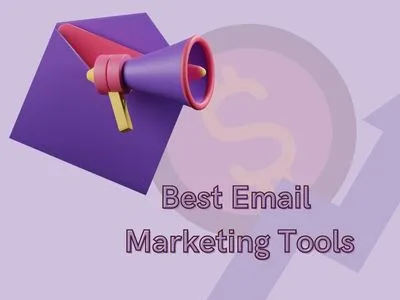Healthcare organizations face unique challenges when managing risk and staying compliant with regulations. These facilities must protect patient data, follow strict privacy laws, and maintain safety standards while delivering quality care. The complex nature of healthcare operations makes it difficult to track all the moving parts that affect compliance.
The right platform can streamline risk management and compliance processes, helping healthcare organizations avoid costly violations and protect patient information. Modern software solutions offer automated monitoring, real-time reporting, and integrated workflows that simplify complex regulatory requirements. Thus these tools help medical facilities identify potential problems before they become major issues.
1. ComplyAssistant
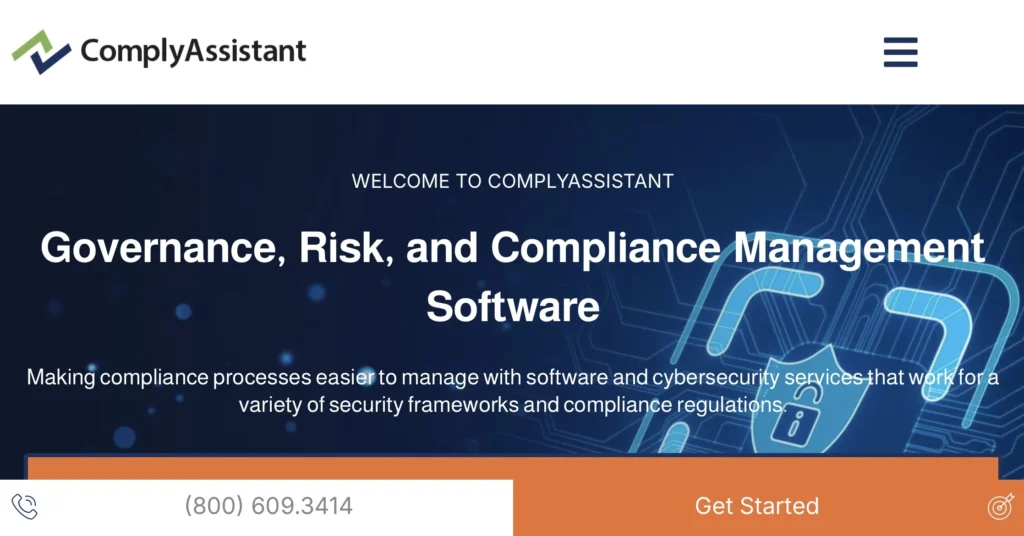
ComplyAssistant provides cloud-based GRC software specifically designed for healthcare organizations. The platform helps manage compliance activities across various regulations, including HIPAA, HICP, NIST, and PCI requirements.
The software offers tools for risk assessments, policy management, and vendor oversight. Healthcare organizations can document and manage risks through the cloud portal while preparing for audits and accreditation requirements.
So, healthcare risk management software by ComplyAssistant includes real-time reporting features. The platform supports healthcare environments of all sizes with templates and workflows built for medical compliance needs.
The system helps track evidence and manage procedures across different healthcare regulations. Organizations can use the platform to maintain documentation and monitor compliance status through a centralized dashboard.
ComplyAssistant serves healthcare facilities by providing specialized tools for the medical industry. The software focuses on simplifying complex compliance tasks while maintaining accuracy in regulatory reporting.
2. Blaze
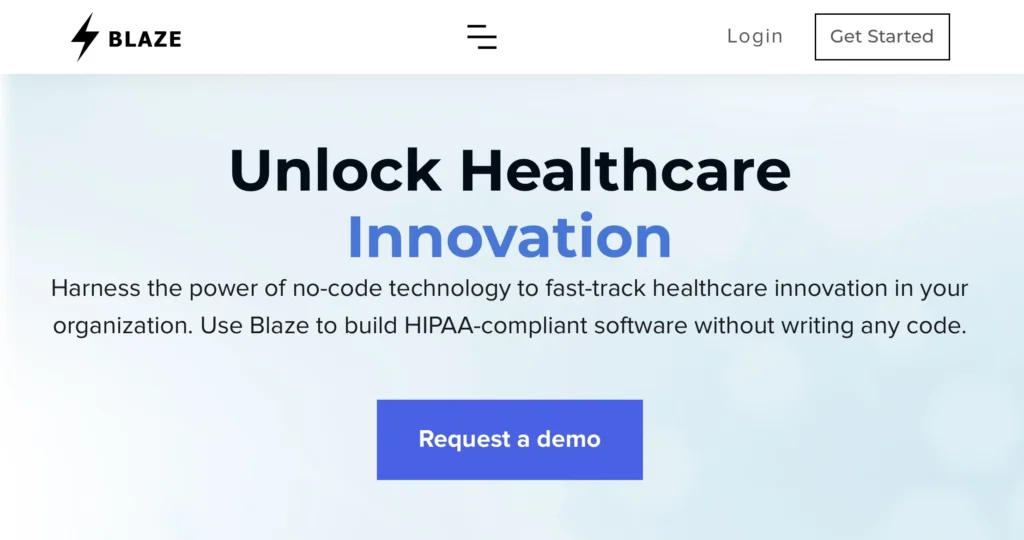
Blaze provides healthcare organizations with a secure, HIPAA-compliant communication platform designed to streamline patient interactions and workflow management. The platform allows healthcare providers to create custom applications without requiring any coding knowledge.
Healthcare teams can use Blaze for secure messaging between staff members and patients. The platform includes automated follow-up features that help maintain consistent patient communication throughout treatment processes.
Therefore, the no-code approach makes it accessible for healthcare organizations of all sizes. Staff members can build custom workflows and communication tools that match their specific operational needs without technical expertise.
Blaze focuses on maintaining patient data security while improving communication efficiency. The platform includes built-in HIPAA compliance features that protect sensitive health information during all interactions.
Healthcare providers can customize the platform to support various communication workflows. Also, this includes patient appointment reminders, treatment follow-ups, and internal team coordination activities.
The platform serves as an alternative to standard business communication tools that may not meet healthcare compliance requirements. Hence, Blaze specifically addresses the unique security and regulatory needs of healthcare organizations.
3. Lepide
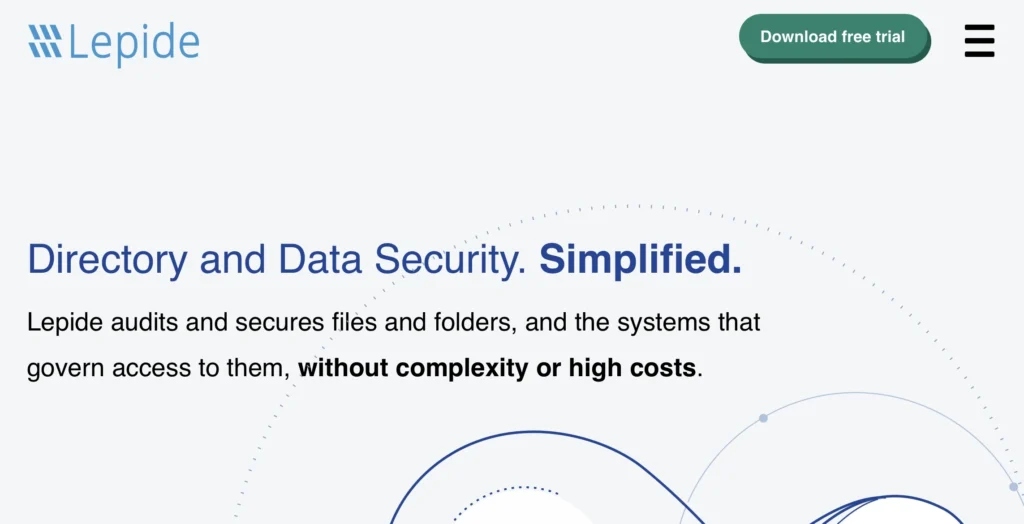
Lepide Data Security Platform offers healthcare organizations a unified solution for data protection and compliance management. The platform focuses on securing unstructured data while helping meet regulatory requirements.
The system provides real-time monitoring and audit trails across both on-premises and cloud environments. Hence, healthcare organizations can track data access and changes to maintain compliance with privacy regulations.
Lepide uses AI-driven reporting to identify potential security threats quickly. So, the platform sends automated alerts when suspicious activities occur, allowing IT teams to respond fast.
The solution targets medium to large healthcare organizations that handle sensitive patient information. IT security managers and compliance officers find the platform particularly useful for maintaining audit requirements.
Lepide Protect, a key feature, automatically detects and manages excessive user permissions. This helps reduce security risks by removing unnecessary access rights based on intelligent risk assessment.
The platform simplifies compliance reporting through automated documentation. Healthcare organizations can generate required reports without manual data collection, saving time and reducing errors.
4. Jatheon
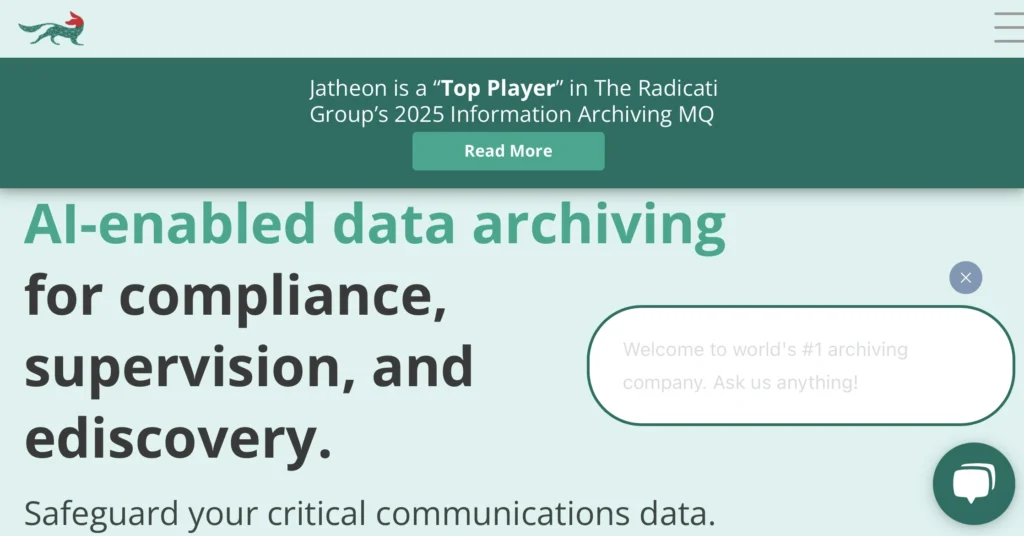
Jatheon Technologies has been serving healthcare organizations since 2004 with specialized archiving and compliance solutions. The platform focuses on email and communication data management for highly regulated industries.
The company processes over 11 billion messages and offers multiple deployment options. Healthcare organizations can choose from AWS-based cloud solutions, virtual environments, or on-premise installations.
Jatheon’s AI-powered platform transforms static storage into searchable intelligence. This feature helps healthcare teams quickly locate specific communications during audits or legal requests.
The platform maintains detailed audit trails for all archived communications. This capability supports healthcare organizations in meeting regulatory requirements and responding to compliance inquiries.
Healthcare providers benefit from the platform’s eDiscovery tools during legal matters. The search functionality allows teams to find relevant communications efficiently across large data sets.
Jatheon supports all major email platforms commonly used in healthcare settings. The platform integrates with existing IT infrastructure without requiring major system changes.
The solution provides data security features designed for sensitive healthcare communications. Organizations can maintain compliance while keeping patient information protected throughout the archiving process.
5. Connecteam
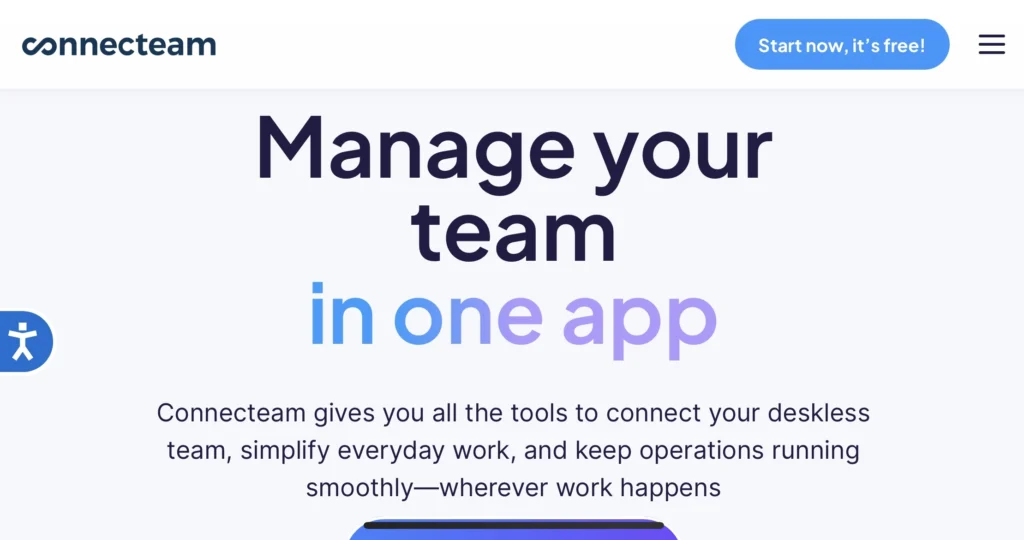
Connecteam offers a workforce management platform that includes compliance features for healthcare organizations. The software combines human resources functions with tools designed to meet HIPAA requirements.
Healthcare providers can use Connecteam to manage employee training and certification programs. The platform tracks compliance deadlines and sends automated reminders to staff members.
The software includes secure messaging capabilities that meet healthcare communication standards. Teams can share information while maintaining patient privacy protections.
Connecteam provides audit trails and reporting features that help organizations document their compliance efforts. These tools generate records that can be useful during regulatory inspections.
The platform works well for healthcare businesses with non-desk employees who need mobile access to compliance materials. Staff can complete training modules and access policy updates through the mobile app.
The software handles employee scheduling while considering compliance requirements like mandatory training completion. Managers can view staff certification status when making scheduling decisions.
Connecteam’s interface is designed for ease of use across different types of healthcare workers. The platform aims to simplify compliance management without requiring technical expertise from users.
Conclusion
Healthcare organizations face complex risk and compliance challenges that require specialized software solutions. The right platform can automate many tasks and help teams stay on top of changing rules.
Key factors when choosing a platform include:
● Support for healthcare-specific frameworks
● Automated evidence collection
● Integration with existing systems
● User-friendly interface
Modern platforms offer AI-powered features that make compliance management more efficient. They also provide real-time monitoring and reporting tools.
The best choice depends on your organization’s size, budget, and specific needs. Most platforms offer demos or trial periods to test their features before making a decision.
For more information check out our website.
- 5 Best Platforms for Compliance in Healthcare - August 1, 2025
- Streamlining Modern Manufacturing with NetSuite: A Complete Guide - July 31, 2025
- Director Guarantees & SaaS Finance: What You Should Know - July 21, 2025

